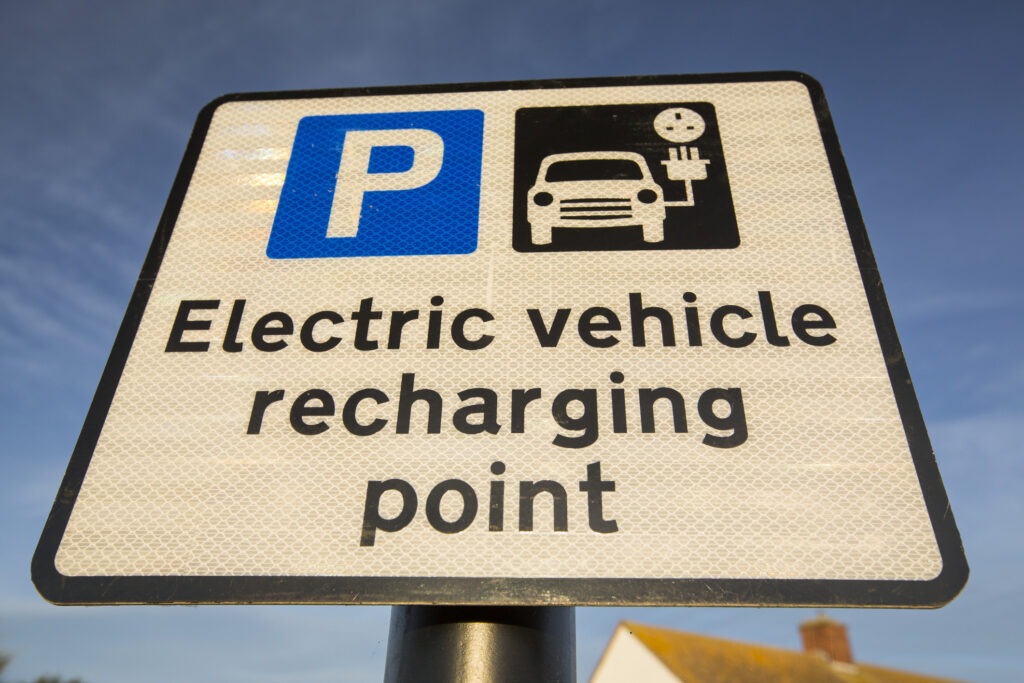UK new LCV market records best September since 2020
11 October 2024

Deliveries of light-commercial vehicles (LCVs) increased in September, marking the month’s strongest result in four years. Andy Picton, chief commercial vehicle editor at Glass’s explores the figures with Autovista24 journalist Tom Hooker.
A total of 48,455 new vans and pickup trucks were registered in the UK during September, an 8.3% improvement year on year. Excluding March, this was the busiest month of 2024 for fleet renewal. It was also the sector’s second consecutive month of growth, after declines in June and July.
In the year to date, 267,339 new LCVs have been delivered in the UK. This marks a 3.6% increase on the first nine months of 2023.
Growth was recorded across all sectors during September, except for pickups, where demand dropped 16% compared to 12 months ago. Vans weighing between 2.5 and 3.5 tonnes gross-vehicle weight (GVW) remained the most popular LCV segment, representing 65.3% of the market in September. With 31,645 registrations, the category surged 8.6%.
Vans weighing between 2 and 2.5 tonnes GVW saw volumes increase 34.8% compared to September 2023, with 9,552 deliveries. Meanwhile, vans below 2 tonnes GVW reached 1,180 registrations, up 34.1% year on year.
Ford fills top three
Ford once again occupied the top three best-selling LCV spots in September. In first place was the Transit Custom, with 7,570 deliveries. The Transit (4,518 units) and Ranger (2,980 units) followed in second and third respectively. The Volkswagen (VW) Transporter finished fourth, with 2,778 registrations.
Stellantis Pro One, the multinational group’s commercial division, placed four models in September’s top 10. The Peugeot Partner came fifth (2,313 units), while the Vauxhall Combo finished eighth with 2,159 deliveries. Its stablemate, the Vivaro, took ninth (2,093 units) as the Citroën Berlingo rounded out the table with 1,829 registrations.
The remaining spots were claimed by the Mercedes-Benz Sprinter in sixth (2,248 units) and the Renault Trafic in seventh (2,247 units).
At the end of the third quarter, the Ford Transit Custom held a comfortable lead in the year to date, thanks to 35,517 deliveries. It has a 12,000-unit advantage over the Ford Transit in second.
Meanwhile, its stablemate, the Ford Ranger (15,412 units), has some competition for third. The pickup sits just over 1,000 registrations ahead of the Mercedes-Benz Sprinter in fourth (14,252 units). Despite a poor monthly result, the Vauxhall Vivaro in fifth is still under 1,000 units behind the German model.
Double-digit BEV drop
The new battery-electric vehicle (BEV) LCV market endured a double-digit drop in September. Deliveries were down 18.7%, with only 2,342 units up to 3.5 tonnes GVW. This was 540 registrations less than the same period in 2023 and marked the technology’s fourth consecutive month of decline.
From January to September 12,944 BEVs have been delivered, a 9.5% decrease on the first nine months of 2023. The powertrain currently holds a market share of 4.8% in the UK LCV market, down 0.7 percentage points (pp) from 12 months ago.
With just three months of the year left, a significant turnaround is needed to achieve the required ZEV mandate of 10% for 2024. This reflects a fleet sector that is lacking in confidence, put off by the current absence of appropriate infrastructure and effective support from the existing government.
Peugeot’s positive September
Peugeot topped the BEV market in September, with 704 deliveries equating to 30% of the technology’s overall total. VW took second with 349 units (14.9% share), while Vauxhall reached 206 registrations in third (8.8% share). Mercedes-Benz delivered 204 new BEVs in fourth (8.7%) and Ford finished fifth with 182 units (7.8% share).
Looking at the month’s best-selling BEVs, the Peugeot e-Partner took first with 396 registrations. This was followed by the VW ID. Buzz Cargo in second (349 units) and the Peugeot e-Expert in third (308 units). The Mercedes-Benz eVito finished fourth with 165 deliveries, while the Vauxhall Vivaro Electric placed fifth, reaching 157 registrations.
Then came the BYD ETP3 in sixth (155 units), the Renault Kangoo E-Tech in seventh (139 units), and the Nissan Townstar EV in eighth (137 units). The recently launched Ford Transit E-Custom took ninth (119 units), followed by the Toyota Proace City Electric in 10th (83 units).
In the year to date, Peugeot nearly held a 750-unit lead over Vauxhall in second, with 2,760 deliveries. VW sat in third with 1,776 registrations, followed by Ford (1,328 units) and Renault (1,094) in fourth and fifth respectively.
ZEV mandate concerns
There were only a few manufacturers on track to meet the minimum 10% ZEV mandate sales share target for 2024. In the year to date, this included BYD (100% of overall sales), Peugeot (14.1% of overall sales), Nissan (13.1% of overall sales) and Maxus (11.9% of overall sales).
Meanwhile, Vauxhall (7.5% of overall sales), Toyota (7.3% of overall sales) and VW (6.3% of overall sales) were all below the threshold. Renault (5.1% of overall sales), Citroën (4.9% of overall sales) and Mercedes-Benz (4.8% of overall sales) were even further behind.
As part of the Vehicle Emissions Trading Scheme (VETS), an additional 678 BEVs between 3.5 and 4.25 tonnes GVW were registered in the year to date, (152 units in September 2023). The models from Ford, Iveco, Maxus and Mercedes-Benz contributed towards manufacturer targets.
This gave the BEV LCV market an overall delivery total of 3,020 units in September, down 0.5% year on year. From January to September, 14,188 registrations had been recorded, a 7.7% decline on the same period last year.
Young stock drives used market
Stock availability at auction has increased by a third compared to 2023. Low-mileage vehicles under three years of age have been achieving the best results. Prices continue to fall for high mileage, harder-worked, base spec stock, meaning trade buyers have been reluctant to buy.
Buyers cited long body shop lead times, spare part delays and further price drops as reasons for focusing on vehicles that can be turned around the fastest. There is a general upward trend in conversion rates at auction, but this can depend on stock quality.
Retail buyers continue to see higher finance rates affect their buying power. Many trade sites have reported that business is quieter than they had hoped. Many operators are choosing to keep their current vehicle at least until the UK’s Autumn Budget has been announced.
The number of used LCVs sold during September increased by nearly 6% against August and over 15% year on year. The average selling price has also grown by 1.9% from the previous month’s report. However, this metric is down a considerable 23.8% compared with September 2023.
Ahead of pre-pandemic levels
Yet, the current used market remains buoyant, with 13.8% more vehicles sold than in September 2019. Compared to this pre-COVID-19 period, the average selling price is now nearly 24.4% higher.
Of the vehicles sold at auction during September this year, 78.6% were Euro 6 at an average age of 55.6 months. The average mileage sat at 73,419 miles (118,156km), down from 73,682 miles in August.
Used electric vans continued to underperform, with sales contributing to only 1.05% of the overall market, a slight gain from 1.03% in August. The average age of these vehicles increased to 69.9 months, up from 49.2 months.
The average mileage of used electric LCVs increased to 34,104 miles from 30,929 miles. Euro 5 stock made up the remaining 20.3% of sales, down 2.9% on the previous period.
Falling average ages
The average age of sold stock in September fell from 79.5 months to 77 months. However, this figure was 1.8 months older than 12 months ago. Average mileage over the month dropped 0.9% to 79,919 miles but this was 3.7% higher than the same period last year.
Sales of medium-sized vans continue to outnumber all other LCV categories at auction, accounting for 35.8% of all auction transactions in the month. Small vans captured 27.5% of sales, while large vans took a 25.8% market share.
Volumes of sold pickup stock accounted for just 10.9% of all sales, down 0.5%. Yet, the segment recorded the highest average sale price at £12,283, down 1.5% from August.
Meanwhile, large vans covered more distance than any other vehicle type at an average of 89,424 miles. This was up over 1,200 miles on the previous month and 1,900 miles year on year.
Improving conversion rates
First-time conversion rates improved by 0.5% to 73.2% overall. However, this was 2.6% lower than September 2023. The best conversion rates for the month were achieved in the pickup sector at 77.9%, up 7.6%. On the other hand, a conversion rate of 69.4% in the large panel van sector returned the lowest, down 1.6%.
Used vehicles observed for sale in the retail market last month remained static at 46,540 units. Diesel models accounted for 94% of this total. BEVs took a 3.4% share, followed by petrol (1.8% share) and plug-in hybrids (0.5% share).
Of all vehicles on sale, 37.5% were valued at £20,000 or more, while 37.1% were on sale for between £20,000 and £10,000. At the lower end of the market, vehicles on sale between £10,000 and £5,000 made up 20.7% of the overall market, up 1.3%. Meanwhile, 4.7% of LCVs were on sale for less than £5,000.
White vehicles continue to make up over 50% of all those observed for sale, followed by grey at 15.7% and silver at 10.4%. The average age of all vehicles in September remained static at 57 months. The average mileage fell to 59,000 miles, a fall of 0.3% from August.




